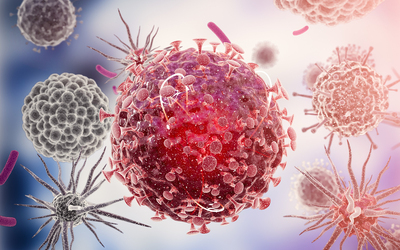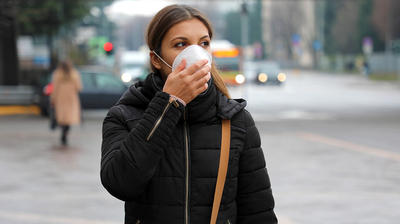
Seniors and immunocompromised people aren’t the only ones who have an extra reason to be concerned about COVID-19.
The COVID-19 pandemic is threatening the health and wellbeing of the world right now. While we often think of the elderly and people with serious underlying conditions as the most vulnerable to coronavirus complications, another subset of the population may also be at increased risk: people with substance use disorders. Here’s a closer look at the link between COVID-19 complications and substance use disorder, along with why social distancing may increase the threat.
COVID-19 and Substance Use Disorders
Older adults aren’t the only people who are at higher risk for severe illness from COVID-19, according to the CDC. People with asthma and chronic lung disease, people with serious heart conditions, immunocompromised people, people with severe obesity, people with diabetes, people with chronic kidney disease, and people with liver disease are also at high-risk, especially if these underlying medical conditions are not under control.
While people with substance use disorders may not be the first to come to mind when it comes to COVID-19 risk, they could also be hit hard by the pandemic, according to the National Institute on Drug Abuse (NIDA). This is for several reasons. People who smoke tobacco, use marijuana, or vape may be compromised because COVID-19 attacks the lungs. Additionally, people with opioid use disorder (OUD) and methamphetamine use disorder may also have respiratory and pulmonary health issues and are therefore also vulnerable.
Furthermore, people with substance use disorders have other challenges which may put them at greater risk, including decreased access to health care, housing insecurity, and an increased likelihood of incarceration. While these things may not directly translate to increased susceptibility to COVID-19, they do find people in closer contact with others and therefore more vulnerable to the spread of the disease.

Social isolation is necessary to flatten the curve, but is it increasing the risk of relapse for people with SUDs?
NIDA’s troubling conclusion? “We know very little right now about COVID-19 and even less about its intersection with substance use disorders. But we can make educated guesses based on past experience that people with compromised health due to smoking or vaping and people with opioid, methamphetamine, cannabis, and other substance use disorders could find themselves at increased risk of COVID-19 and its more serious complications—for multiple physiological and social/environmental reasons.”
The Social Isolation Struggle
Then there’s the fact that the situation is in and of itself a stressful one, which could be a tipping point for people in recovery. NIDA Director Dr. Nora Volkow told US News & World Report, “Every one of us is affected by COVID – maybe we don’t get infected, (but) we’re all anxious because of the uncertainties. How we cope with that anxiety is very much dependent on multiple factors, including our circumstances, but one of the ways that people cope with it is by taking drugs.”
That’s not all. Even stay-at-home orders and social isolation present unique threats to addicts. For starters, it may mean limited access to health care and greater risk of illnesses which may both disrupt access to critical services while also serving as a barrier to treatment. It’s not exactly surprising, then, that according to Volkow, catastrophes like the current pandemic are often associated with an increase in drug consumption and relapse for the simple reason that people use and abuse drugs and alcohol as a coping mechanism. While this is problematic in a healthy world, in the post-pandemic world it’s especially troubling.
Lastly, the mere act of self-isolation and the boredom that accompanies it can be a trigger at a time when people may no longer have easy access to the support they need. The good news? We are living in the digital age so while it may take some adjusting to, it’s still possible to connect using internet resources, cell phone apps, and social media.
While it may not seem like it now, there is an end on the horizon for the coronavirus pandemic. If you or someone you love struggles with addiction, will there be sobriety or a relapse on the other side? Finding the right rehab treatment program can make all the difference. Enter leading drug rehab St. Louis Harris House, which has been providing targeted rehabilitation services to addicts for more than 50 years. Call us to learn about admissions today.







